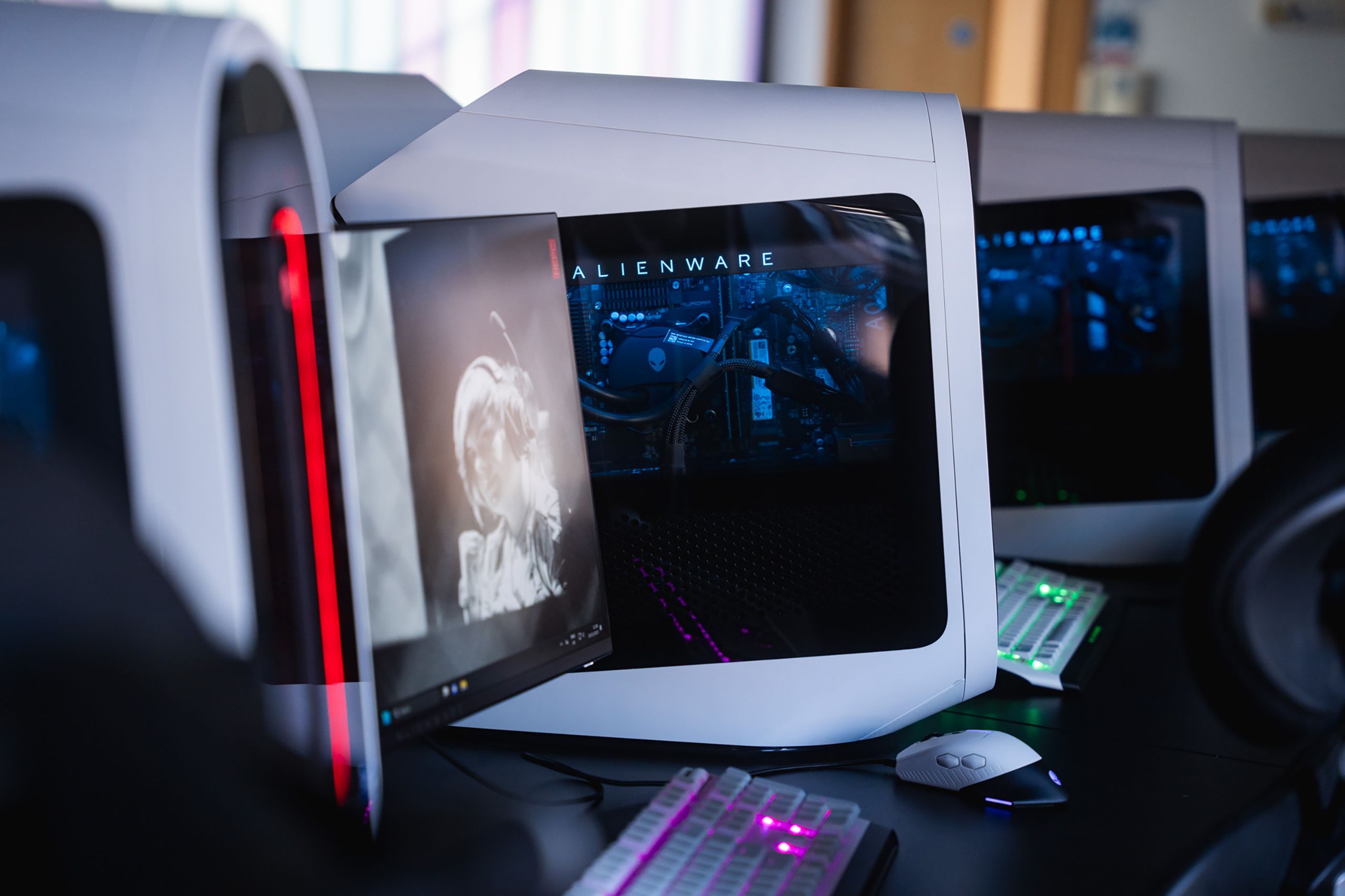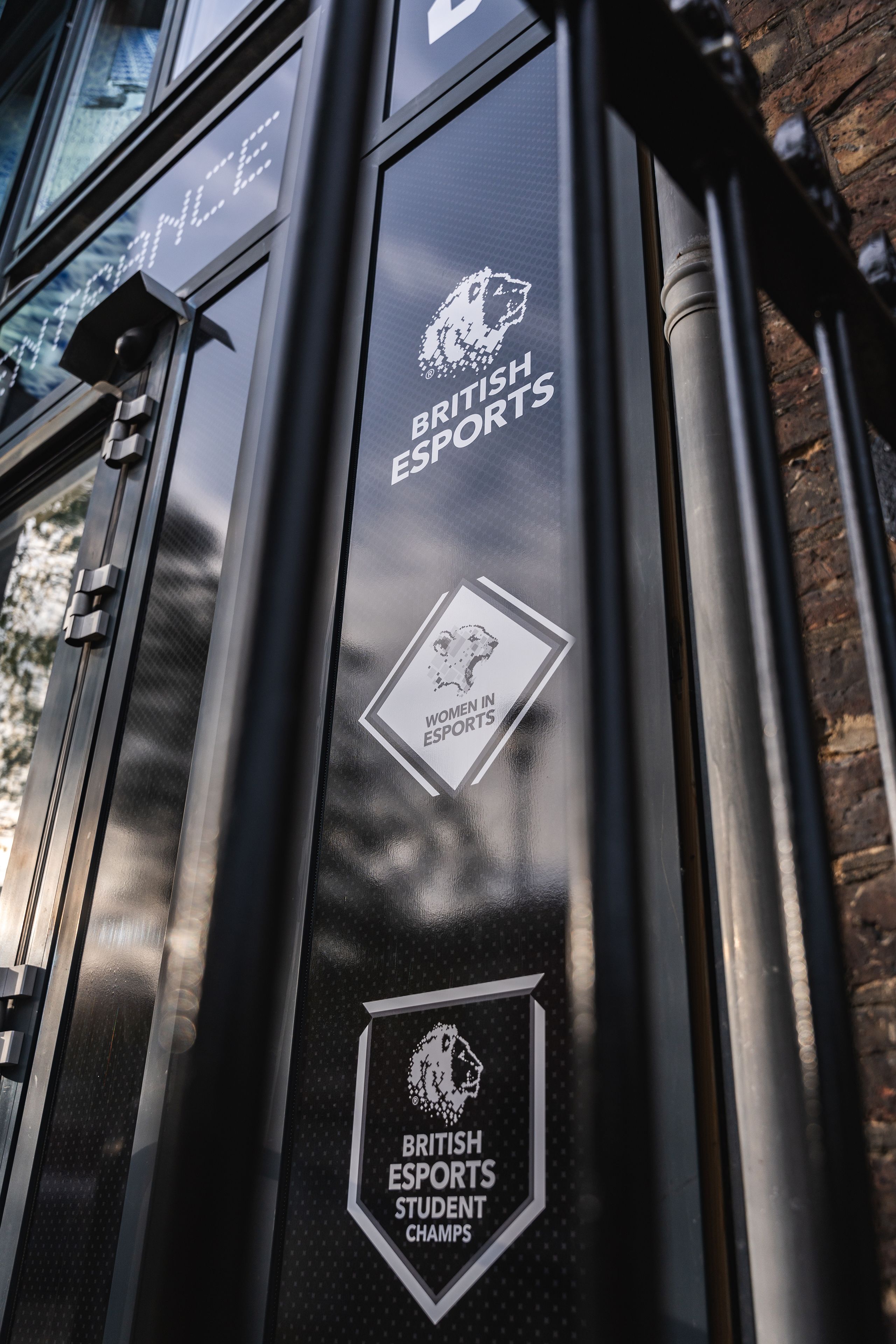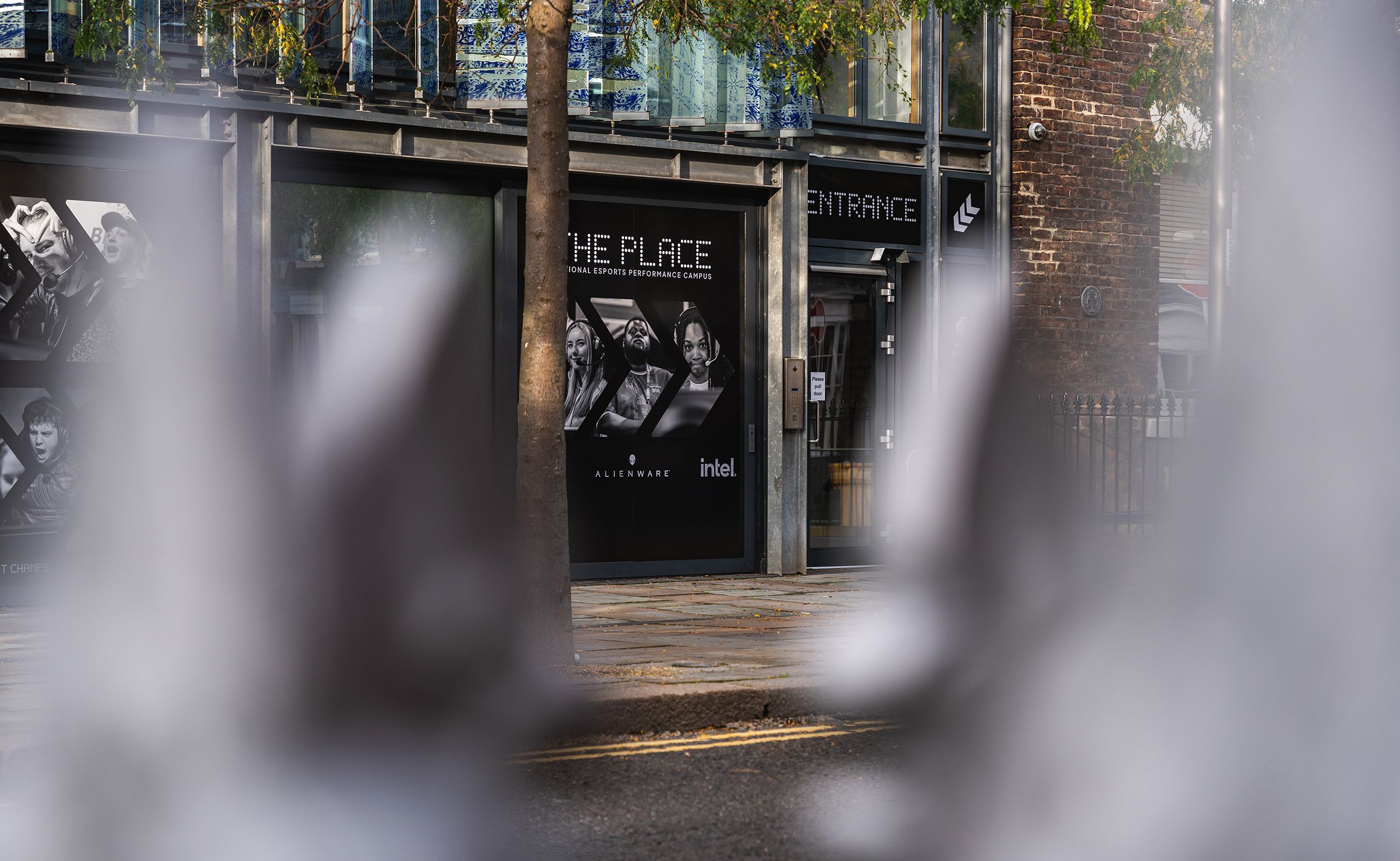Pioneering educational transformation through esports

Esports are changing lives around the globe as their development equips passionate young competitors with a host of transferable skills. IAN LAMMING discovers that Sunderland, in the northeast of England, is at the heart of a movement that is revolutionising education
Place an ear to the door of many a teenager’s bedroom and chances are the sounds reverberating around the room will be connected to video gaming.
Fighting, fantasy and football, transferred digitally to the screen, have become embedded in young people’s lives, from primary school children to adults.
But gaming has moved way beyond child’s play into a multi-billion pound industry involving half a billion players as the leisure pursuit develops into esports. The UK is one the leading nations in esports and education and Sunderland, in the northeast of England, has placed itself in the vanguard by becoming the home of British Esports, which has invested in infrastructure to attract the right players.
So what is esports? Short for electronic sports, it has rapidly emerged as one of the most dynamic and exciting phenomena in the world of entertainment and competition, representing a vast and diverse ecosystem where video games are transformed into a competitive, professional spectator sport. Unlike traditional sports, esports uses digital platforms, allowing players and fans to connect on a global scale, transcending geographical boundaries and cultural differences.
The exponential growth of esports is reflected in its staggering global numbers. With a growing audience of over half a billion people, esports has witnessed a meteoric rise in popularity, both as a spectator sport and as a competitive career choice for talented gamers. The industry’s value has surged into the billions, thanks to investments, sponsorships, and broadcasting rights.
“Esports is not merely a hobby; it’s a multi-billion-pound industry that has captured the hearts and minds of enthusiasts around the world,” says chief executive of the British Esports Federation Chester King.
The British Esports Federation was established in 2016 to be the national body in the United Kingdom. As one of the world’s leading esports authorities, it is a recognised member of the Global Esports Federation for Great Britain and Northern Ireland, and founding member of the International Olympic Committee Esports and Gaming Liaison Group.
From amateur grassroots competition to cutting edge esports curriculum and national representation on the global stage, British Esports is dedicated to increasing levels of esports awareness, improving esports standards and inspiring future esports talent.
“Our innovative curricula cultivates a diverse range of transferable skills and digital literacy, significantly enhancing students’ prospects for academic achievement, all the while immersing them in subjects that truly ignite their passion,” adds Chester.
“Our vision is to raise the game for the United Kingdom through world class infrastructure for the future development of esports in the UK, positioning Great Britain as one of the leading esports nations globally within the next 10 years.
“The mission is to promote, improve and inspire. We endeavour to cultivate a supportive, inclusive and diverse community that nurtures and develops talent, fosters healthy competition, and champions the values of sportsmanship, fair play, and respect.”
Our vision is to raise the game for the United Kingdom through world class infrastructure for the future development of esports in the UK, positioning Great Britain as one of the leading esports nations globally within the next 10 years.
The Federation owns and operates the largest amateur esports competition for students aged 12+ at schools and colleges throughout the UK, the Student Champs. Featuring an excess of 5,000 players and 700 teams, the competition is designed to showcase the very best amateur esports talent and complements the Pearson Esports BTEC national qualification.
The benefits to participating in the British Esports Student Champs, especially when in conjunction with the BTEC in Esports, are manyfold.
As a player, students are exposed to high-end competitive gaming, featuring some of the best talent in the UK.
By participating in one of many support roles, students are gaining valuable hands-on experience and developing transferable skills that will attract future employers.
Esports students typically study a range of other related academic subjects, such as computer science, engineering, mathematics, creative media, sport and games development.
Benefits include honing strategic thinking and problem solving skills, developing leadership and communications, social awareness and empathy, creativity and originality, decision making and dexterity. Multi-tasking and concentration are also boosted, as are digital literacy and cognitive skills, perseverance and resilience, cross curricular engagement and improved attendance, healthy gaming habits and social emotional learning.
Furthermore, students involved in the British Esports Student Champs can use their participation towards their Duke of Edinburgh Award as part of their skills activity.
In 2019, the Federation launched the award-winning Women in Esports initiative, designed to encourage more women and marginalised genders to participate in competitive gaming, creating safer spaces and breaking down barriers. “We’re reimagining education,” says Chester. “Esports is a dynamic and innovative sector that has redefined the way we think about learning. Imagine classrooms where complex mathematical concepts are applied through calculating in-game strategies, where storytelling skills are honed through interactive game narratives and where leadership and collaboration thrive as students strategise and execute complex team plays.”
The Federation has pioneered the gamification of academic studies and classroom dynamics, with early learning in Leaderships Skills Qualifications and higher and further education provision with the Pearson BTEC in Esports and the exclusive university level partnership with the College of Esports, the world’s first institution offering foundation and bachelor degrees in a range of international esports business areas.

With a growing audience of over half a billion people, esports has witnessed a meteoric rise in popularity, both as a spectator sport and as a competitive career choice for talented gamers
The Esports BTEC launched in 2020 saw 222 Level 3 students registered in 14 centres and 180 Level 2 students registered in five centres.
The fourth academic year of delivery this year saw 2,705 Level 3 students registered in 108 centres and 1,017 Level 2 students registered in 54 centres. In total, more than 9,000 students have enrolled to study the qualification since launch.
Recognising the potential for similar support in the world of esports, the Leadership Skills Foundation and British Esports are partnering to develop qualifications at Level 1 and Level 2 as introductory measures for school students.
These qualifications aim to nurture the essential leadership skills for leading esports activities and will be closely integrated with BTEC Esports qualifications.
The national federation also collaborates with government departments (DCMS, DfE) and world-renowned organisations in education (Pearson, Leadership Skills Foundation, World Economic Forum), esports (Epic Lan, Riot Games, Epic Games, Global Esports Federation), technology (Dell, Intel, Alienware), sports, and safeguarding (NSPCC) to drive innovation, promote best practices and foster a safer and more inclusive esports ecosystem.
At the core of British Esports’ mission lies the National Esports Performance Campus, a ground-breaking initiative that promises to transform Sunderland into the epicentre of esports in the UK.
Nestled in the vibrant city of Sunderland, it aims to fuel creativity, connect minds and power the future. Chester says: “The campus is the definitive home of British Esports, where innovation, passion and dedication create a haven for amateur esports enthusiasts and aspiring professionals alike.”
A multi-purpose esports training and educational campus spanning 50,000sqft, it features a range of facilities, from a dedicated esports arena and stage with capacity for more than 250 spectators, a photography studio, streaming and content creation and conference halls, to multiple classrooms and teaching spaces, business incubators, performance bootcamps, alongside three recently renovated and refurbished Grade II listed gaming houses.
Thanks to a multi-year partnership with Dell Technologies and Intel, and a supplier agreement with Alienware, the venue is equipped with the very latest in PC and gaming technology, including the Alienware Aurora R15 gaming desktops powered by NVIDIA® GeForce RTX® 4080 and Intel® Core™ i7 processors and professional grade peripherals.
“We’ve also recently announced that 5G connectivity will be coming to the National Esports Performance Campus,” says Chester.
One of 19 projects benefiting from a government announcement of an £88 million investment in innovative open 5G, the ‘Sunderland Open Network EcosysTem’ (SONET) Project, led by Sunderland City Council and a consortium of partners, including British Esports, will see faster, more reliable services.
The high-speed connectivity promises seamless live streaming and interactivity of esports tournaments and live sporting events. Fans can witness every moment with real clarity, engaging in real-time statistics, augmented reality enhancements, and even virtual meet-and-greets with their favourite players.
Chester says: “The NEPC really will become a cutting-edge, dynamic hub for entrepreneurs, innovators and esports enthusiasts, a space where education, innovation and esports unite.
British Esports had been looking for its permanent home for over five years, considering numerous locations around the UK. “We were approached by many cities, with many local councils interested in bringing our facilities to their region, then we met the team in Sunderland,” recalls Chester
“The extremely welcoming reception from the city’s council leaders and teams, coupled with the city’s location, nestled on the North-East coast, where it’s clear there is a lack of availability and access to our sector, alongside their determination to become a smart city and emerge as a regional powerhouse for digital innovation, made the decision very easy.”
The commitment to developing digital talent and creating vibrant pathways for careers in digital industries, will transform Sunderland into a thriving hub for esports and digital innovation and bring a transformative boost to tourism.
“We’ve since developed a collaboration with Sunderland College to facilitate the delivery of their Esports BTEC Level 2 and Level 3 programme from our facilities alongside various networking events and showcase activations we’ve developed to help support their links with industry,” says Chester.
“Our cutting-edge facilities will attract professional esports teams and competitive gaming enthusiasts from across the country and around the globe to train and bootcamp ahead of major tournaments.”
As visitors and participants flock to the region, local businesses, hotels, and restaurants will experience increased footfall, subsequently driving economic growth.
The National Esports Performance Campus is also set to house an esports business incubator, fostering entrepreneurship and innovation within the esports industry. This initiative will support the development of esports-related start-ups and contribute to the growth of the regional esports ecosystem, opening the door to positioning Sunderland as a key player in the evolving esports landscape.


Major esports events coming to the UK in 2024 include:
BLAST Premier Spring Final 2024
(Counter Strike) at the OVO Arena Wembley from June 12-16.
League of Legends World Championship Finals
on 2 November
Events already taking place at the campus in Sunderland next year:
- Student Champs Lan Finals June 2024
- Esports in Education Summit June 2024
- Home Nations Bootcamp (Q3 2024)
- Global Esports Games Bootcamp (Q4 2024)
- International Show matches (currently in discussion with several other federations around the world regarding show matches and cultural / education exchange programmes).
